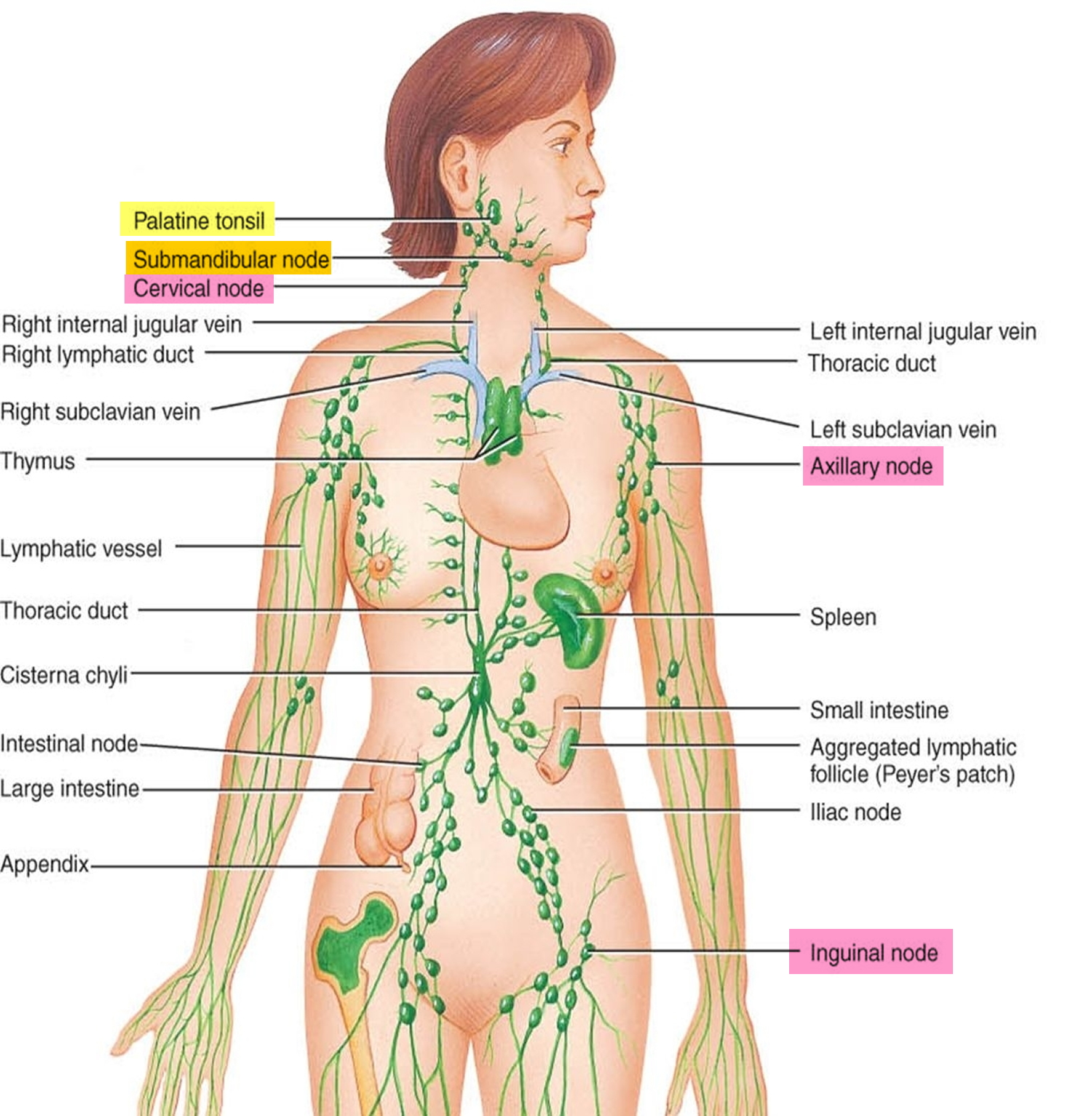
occur with other symptoms, such as night sweats and weight loss. are painless and firm or hard when you touch them. don't go away within a few weeks and slowly get bigger. Swollen glands are more likely to be caused by cancer if they: Occasionally, swollen glands can be a sign of cancer that has started elsewhere in the body and spread to the lymph nodes, or a type of cancer affecting the white blood cells, such as non-Hodgkin lymphoma or chronic lymphocytic leukaemia. sarcoidosis – where small patches of red and swollen tissue, called granulomas, develop in the organs of the body. rheumatoid arthritis – where the immune system starts to attack the tissue lining the joints. lupus – where the immune system starts to attack the body's joints, skin, blood cells and organs. HIV – a virus that attacks the immune system and weakens your ability to fight infections. cat scratch disease – a bacterial infection caused by a scratch from an infected cat. syphilis – a bacterial infection usually caught by having sex with someone who is infected. tuberculosis (TB) – a bacterial infection spread that causes a persistent cough. cytomegalovirus (CMV) – a common virus spread through bodily fluids, such as saliva and urine. WHERE ARE YOUR LYMPH NODES IN YOUR NECK SKIN
measles – a highly infectious viral illness that causes distinctive red or brown spots on the skin.rubella – a viral infection that causes a red-pink skin rash made up of small spots.Less often, swollen glands may be the result of:

using over-the-counter medicines such as paracetamol or ibuprofen.When an infection causes swollen glands you can help to ease symptoms at home by: These infections usually clear up on their own, and the swollen glands will soon go down. You may also have additional symptoms, such as a sore throat, cough, or fever.

The glands in the affected area will often become suddenly tender or painful. Swollen glands are usually caused by a relatively minor viral or bacterial infection, including: a biopsy (where a small sample of fluid is taken from the swelling and tested).If necessary, your GP may request some tests to help identify the cause.






 0 kommentar(er)
0 kommentar(er)
